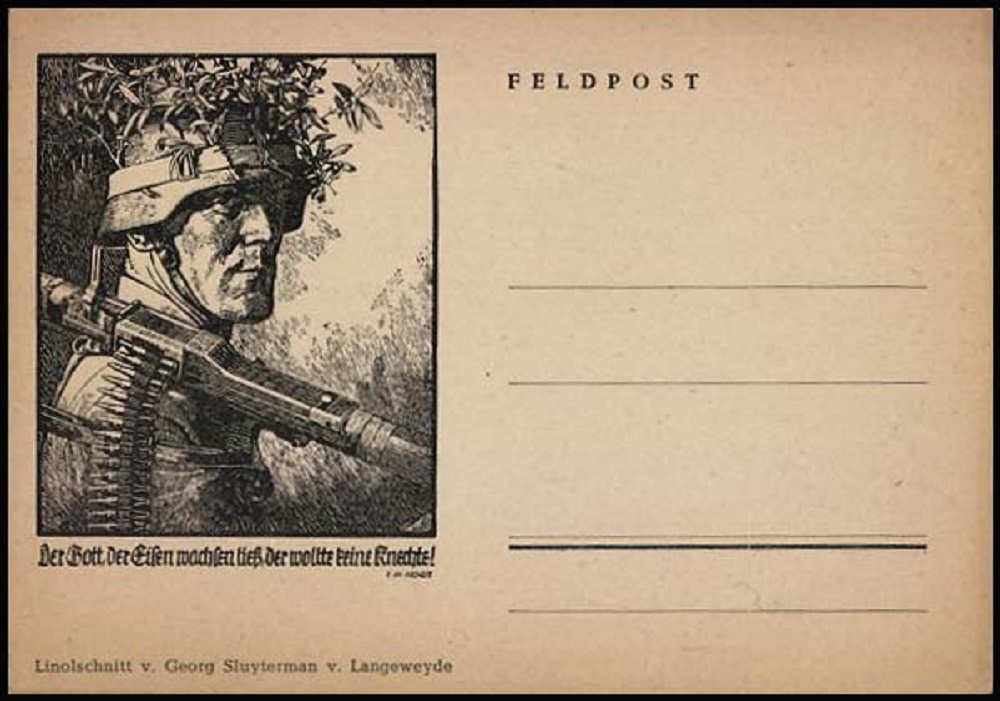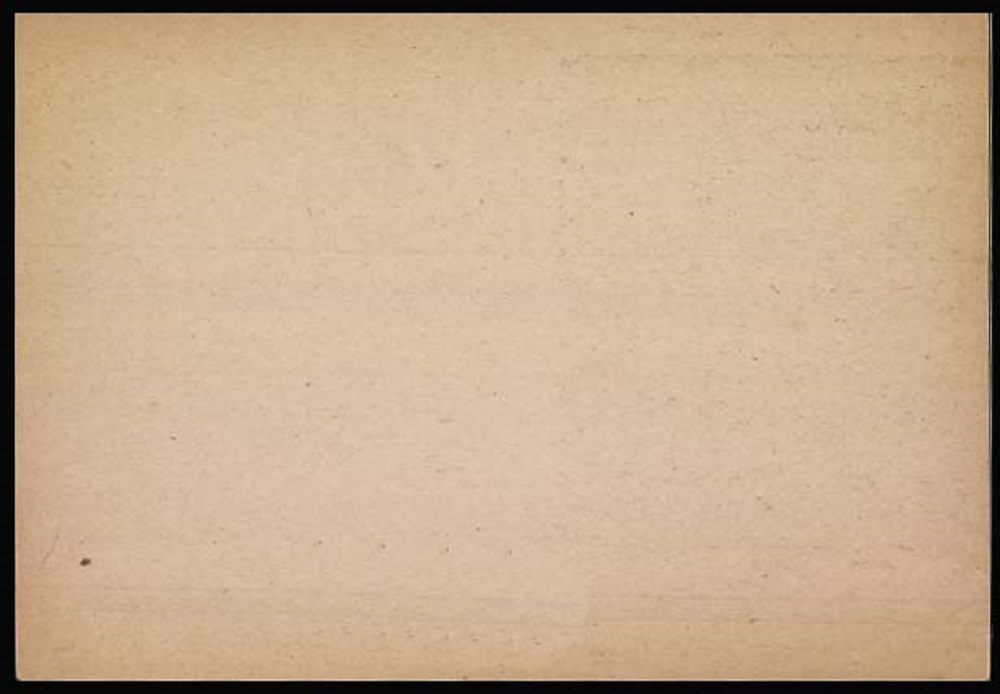PROPAGANDA POSTCARDS
(1940)
This page was last updated
20-Feb-2025 07:06

GEORG von SLUYTERMAN v. LANGEWEYDE
FELDPOST
(1940)
BACKGROUND: These Feldpost cards were most likely issued in 1940 and are similar to the 1940 Red Cross postcards, published earlier that year. Several of the cards in my collection were cancelled in 1942, so it seems likely that these cards were issued somewhere around 1940 or 1941.


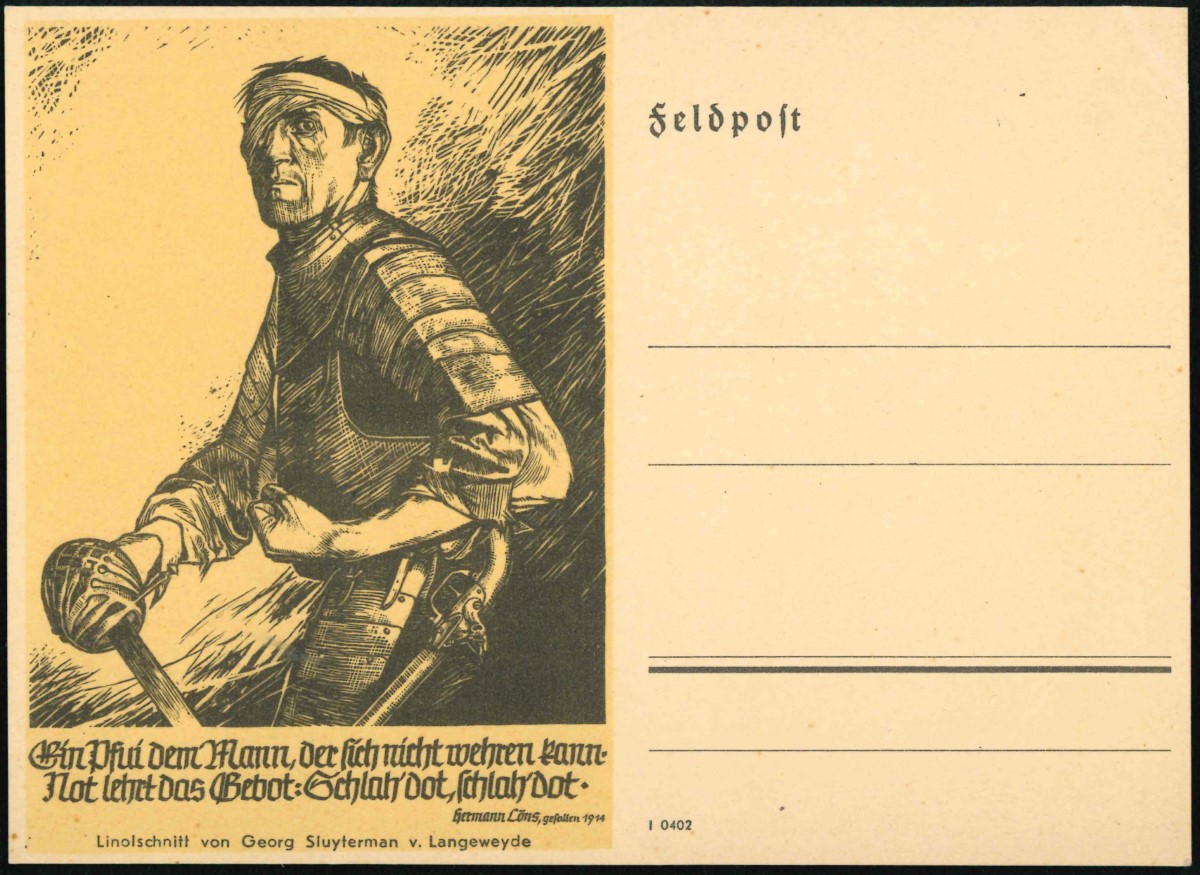
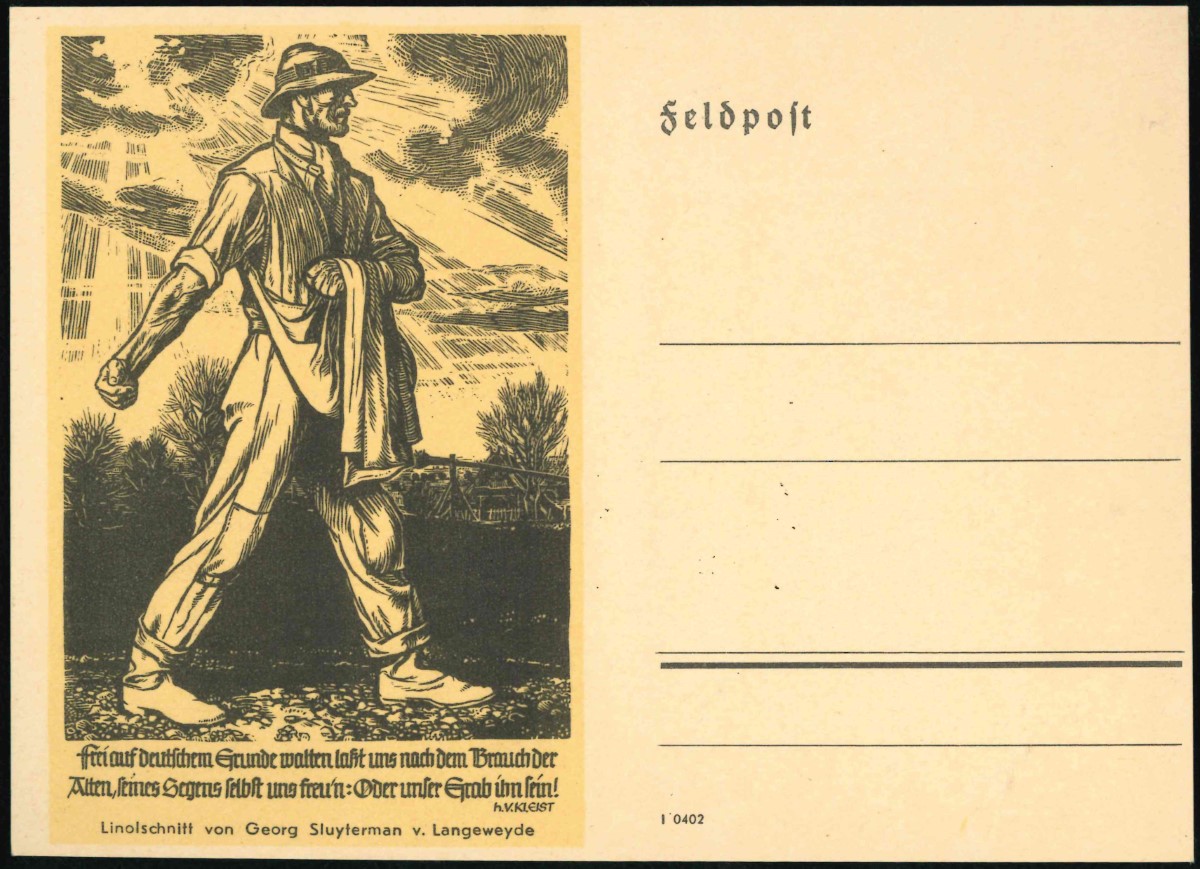
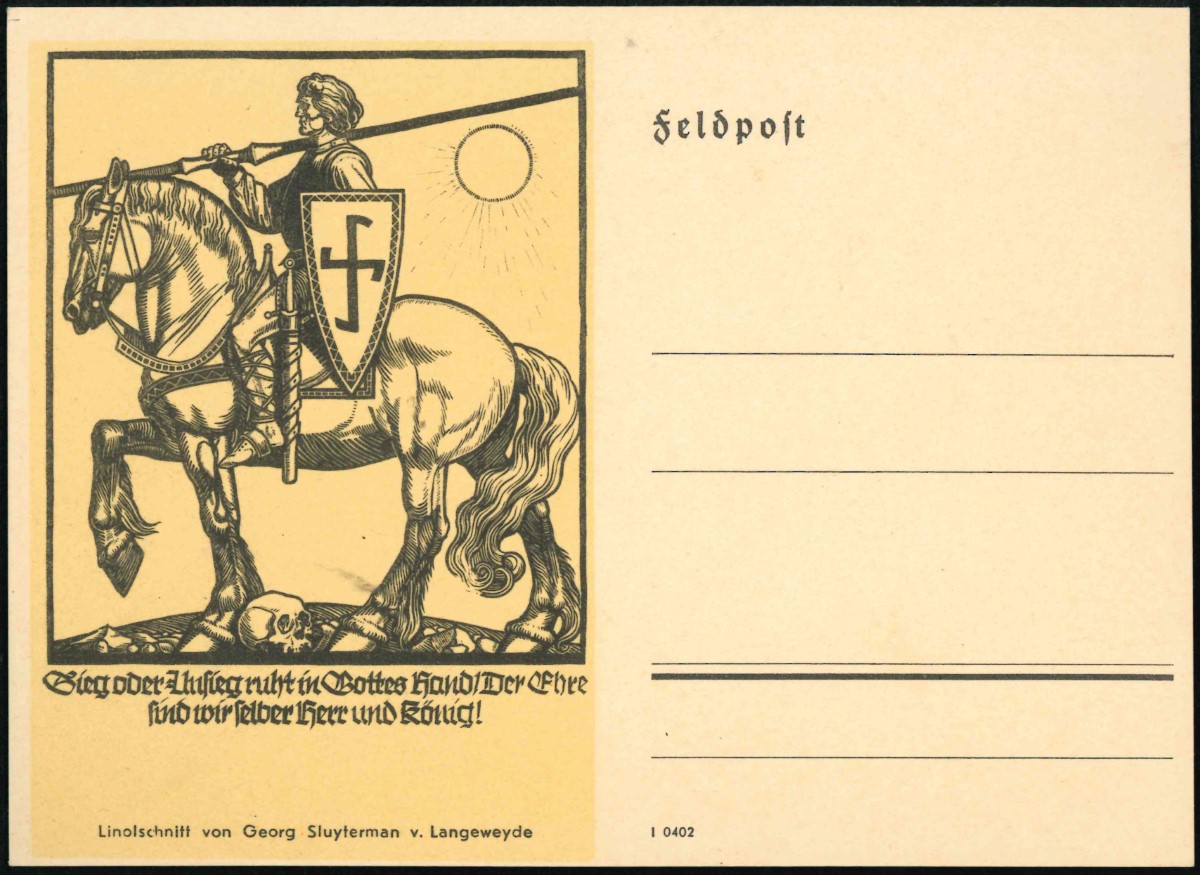
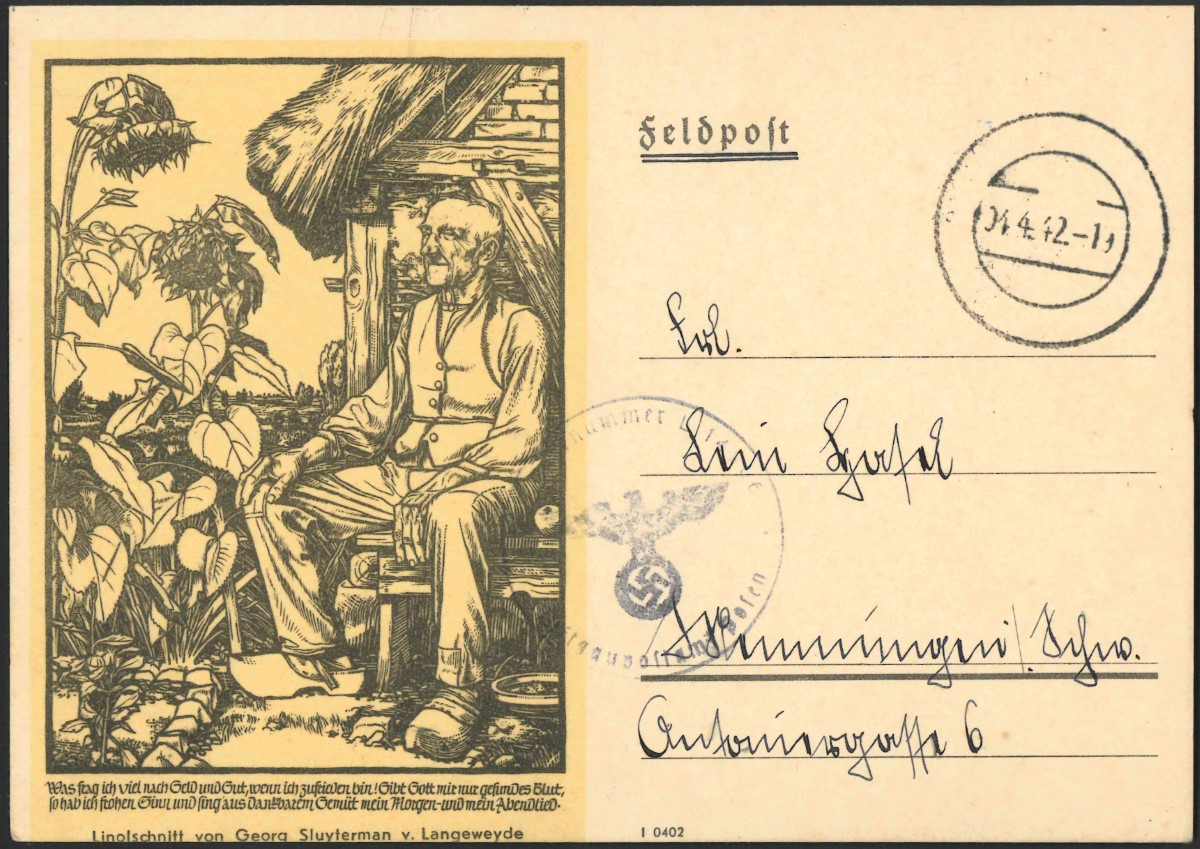
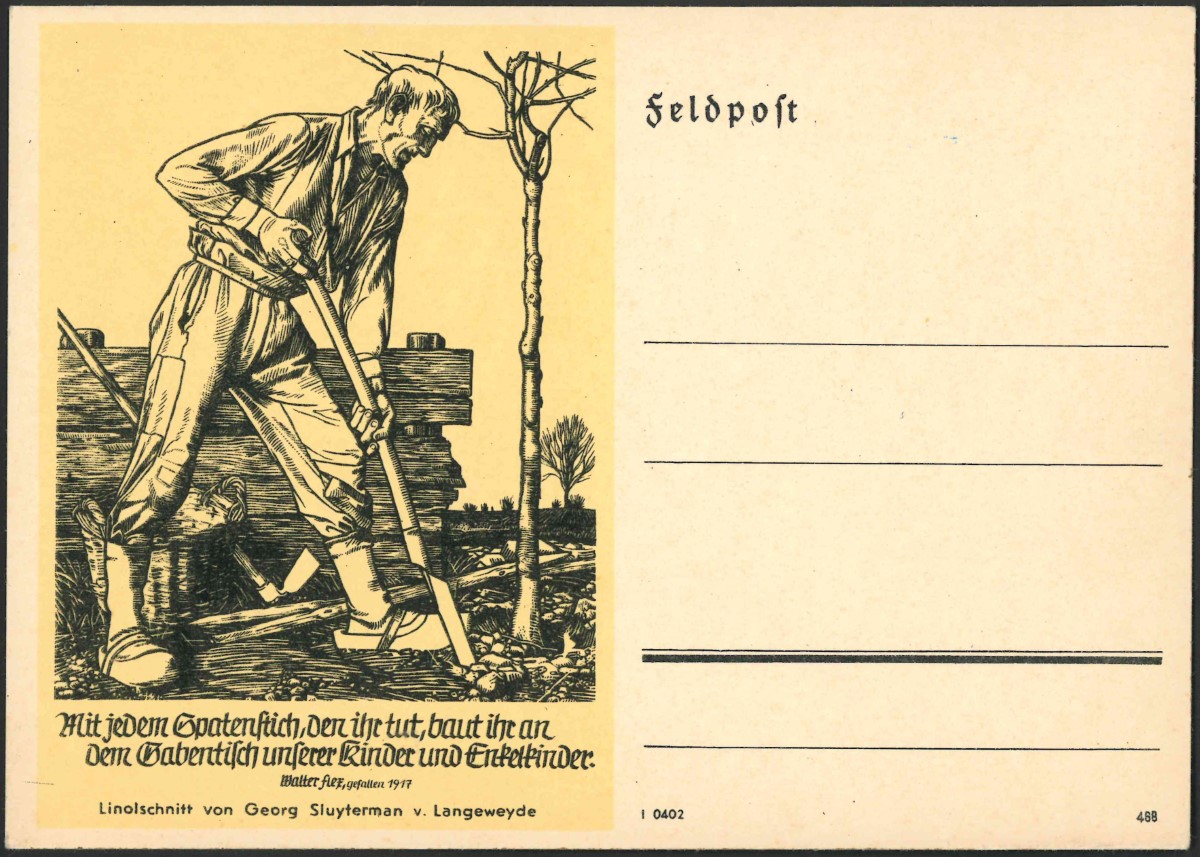
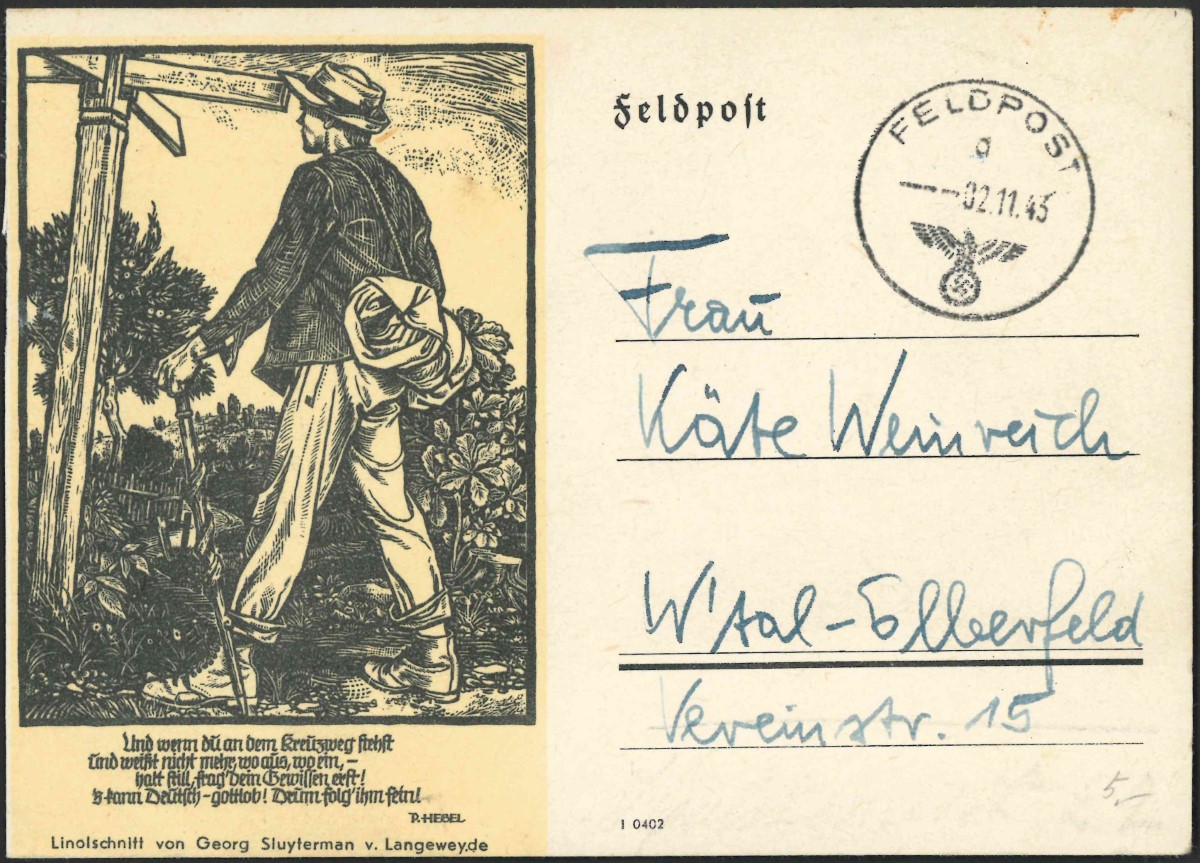
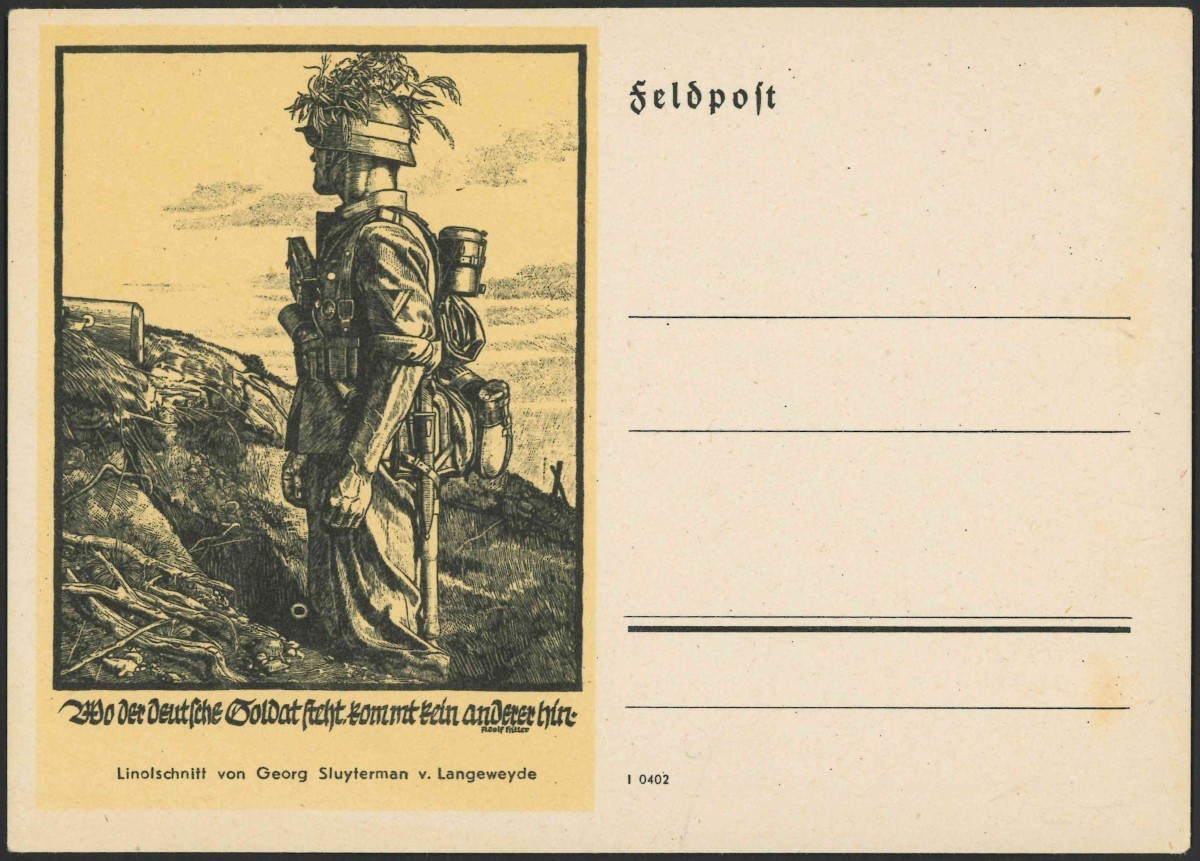
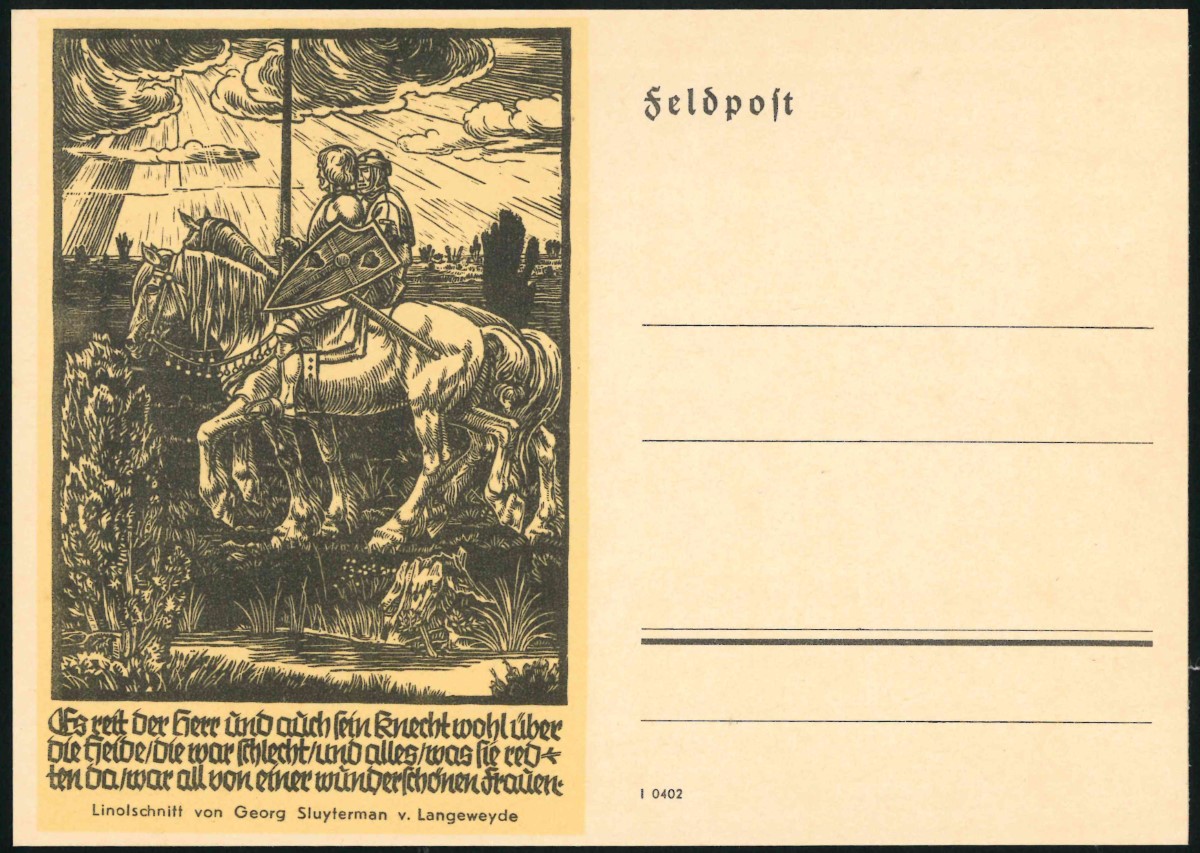
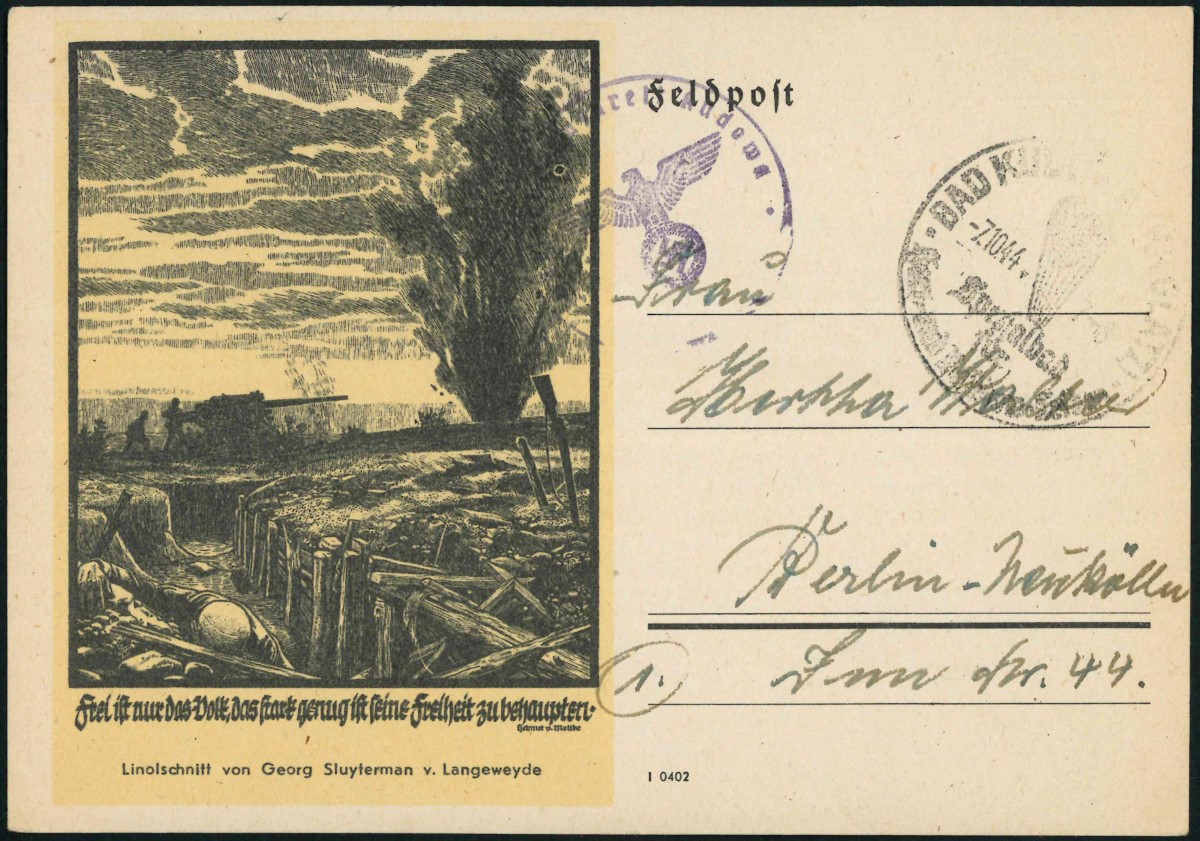
There appears to be more than one set of these cards:
1. Printers Code: 1 0402 Set of ten cards in an envelope
2. Printers Code: G 0350 Set of ten cards in an envelope
3. No Printer's Code
4. DRUCK ROHDEN ESSEN

GERMAN HEROIC LIFE
PRINTER'S CODE 1 0402
This first set of 10 cards was sold in an envelope bearing the inscription "Deutsches Heldenleben | FELDPOST | 10 Künstlerkarten | von | Georg Sluyterman von Langeweyde | Verlag Küster & Co. G.m.b.H., Essen | 1-0402"

1. MEDIAEVAL SOLDIER
The inscription reads "Helf Dir selber, dann, helft Dir auch unser Herre Gott" which translates to English as 'Help yourself, then our Lord God will help you too!'. This phrase was first used in German text by Justus Georg Schottel (1612-1676) who was a German poet and linguist of the Baroque period.


2. STICK GRENADE
This postcard features a German soldier about to throw a stick grenade and has the inscription "Und setzet ihr nicht das Leben ein, nie wird euch das Leben gewonnen sein." - 'And if you do not commit your life, your life will never be won' - from a quote by Friedrich Schiller.


3. WOUNDED SOLDIER
This card depicts an injured soldier carrying a sabre. The inscription reads "Ein Pfui dem Mann, der sich nicht wehren Kann not lehct, das Bebot: schlah' dot schlah' dot" translated as 'Ugh to the man who can't defend himself, the commandment: [REQUIRES MORE RESEARCH]' from a quote by Hermann Lons.


4. FARMER SOWING SEEDS
This card features a farmer sowing his seed and bears the inscription "Frei, auf deutschem Grunde, walten laßt uns nach dem Brauch der Alten | seines Segens selbst uns freu'n: Oder unser Grab ihn sein! - 'Free, on German soil, let us rule according to the custom of the ancients | even we rejoice in his blessing: Or our grave be him!' by Heinrich von Kleist (1777-1811) German playwright, poet, and storyteller.


5. MOUNTED KNIGHT
This card features a knight riding his steed, trampling the bones of his adversaries. The inscription reads "Sieg oder Unsieg ruht in Bottes hand / der erhe find wir selber herr und konig!" - 'Victory or defeat rests in God's hand / we ourselves are the lord and king of the earth!'


6. MAN ON BENCH
This feldpostcard features an old man sitting on a bench and wondering to himself "Was frag ich viel nach Geld und Gut, wenn ich zu frieden bin! Gibt Gott mit nur gesundes blut, so hab ich frohen Sinn, und sing aus Dank barem Gemüt mein morgen-und mein Abendlied" - 'What do I ask about money and property when I am at peace! If God gives me only healthy blood, then I have a good mood and, out of gratitude, my morning and evening songs'.This is the first verse from a folk song by Johann Martin Miller and Christian Gottlob Neefe (1776). There are anther 5 verses to the song which can be found here
The example from my collection below was cancelled in Apr 1942.

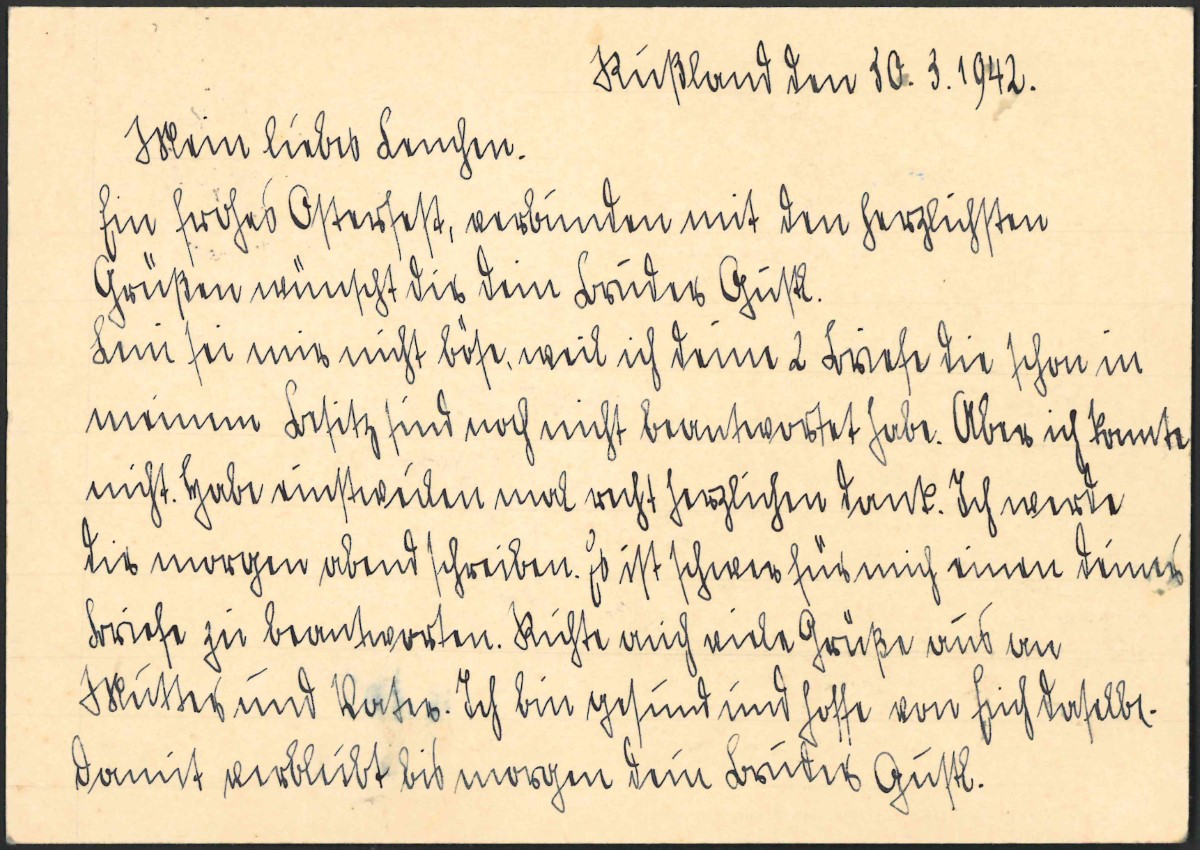


7. PLANTING A TREE
The inscription on this card "Mit jedem Spatenstich, den ihr tut, baut ihr an dem habentisch unserer kinder und enkelkinder" advises that "With every groundbreaking that you do, you are setting the table for our children and grandchildren". By planting a tree, you are providing for the future as trees grow slowly, and only your children and grandchildren will be able to witness it fully grown. In the same way the good things you today are for the benefit of future generations, not necessarily for yourself.This short piece of prose was penned by Walter Flex, a German poet and writer (1887-1917).



8. AT THE CROSSROADS
This card depicts a traveller at a crossroads and bears the inscription "Und wenn Du an dem Kreuzweg stehst, und weißt nicht mehr, wo aus wo ein | halte still, frag dein Gewissen erst! | es kann deutsch, Gottlob, Drum folg ihm fein!" - 'And when you stand at the crossroads | and don't remember where from where one | hold still, ask your conscience first! | it speaks German, thank God, so follow it carefully!' From a poem by R.Hebel.This particular example from my collection, was cancelled on 2nd Nov 1943.

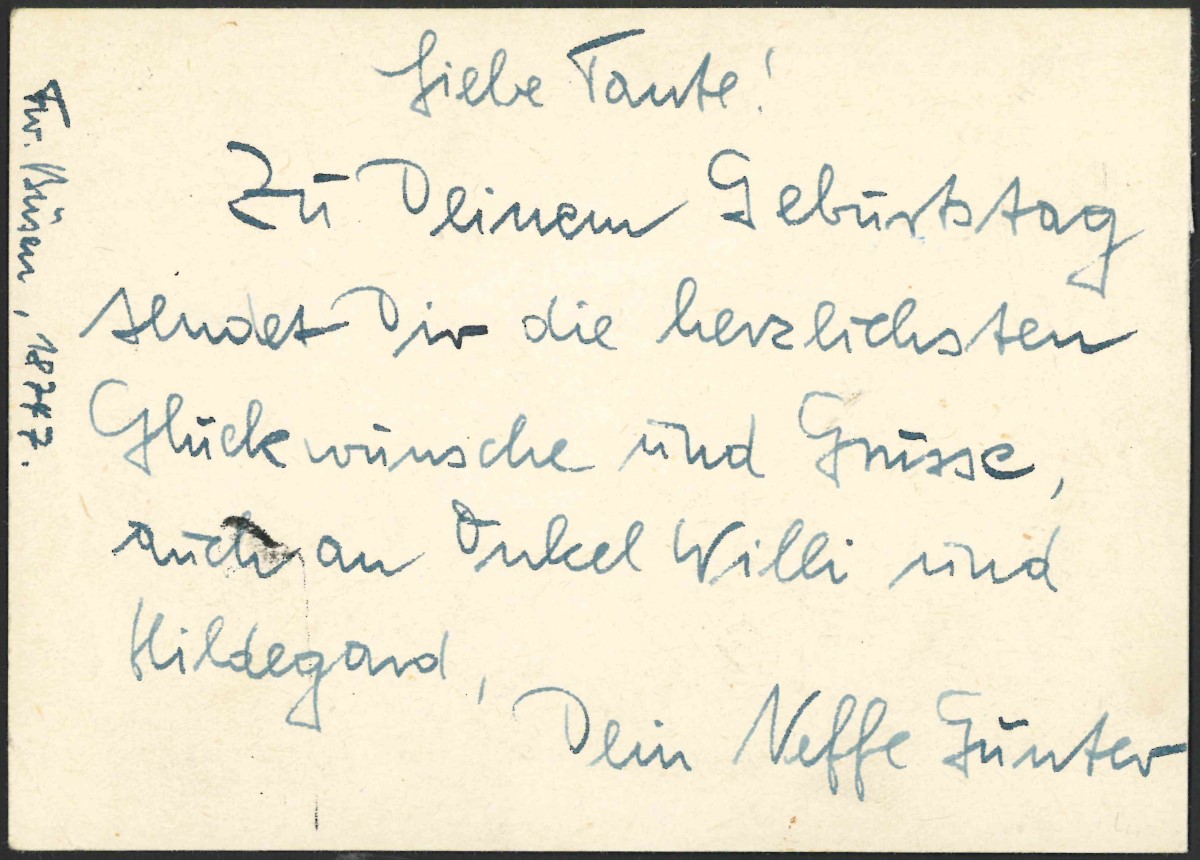


9. THE SOLDIER
This card features a German soldier at the front lines surveying no-man's land for enemy movement. The inscription reads "Wo der Deutsche Soldat steht kommt kein anderer hin" - 'Where the German soldier stands no one else can go'. This was a popular NSDAP slogan.
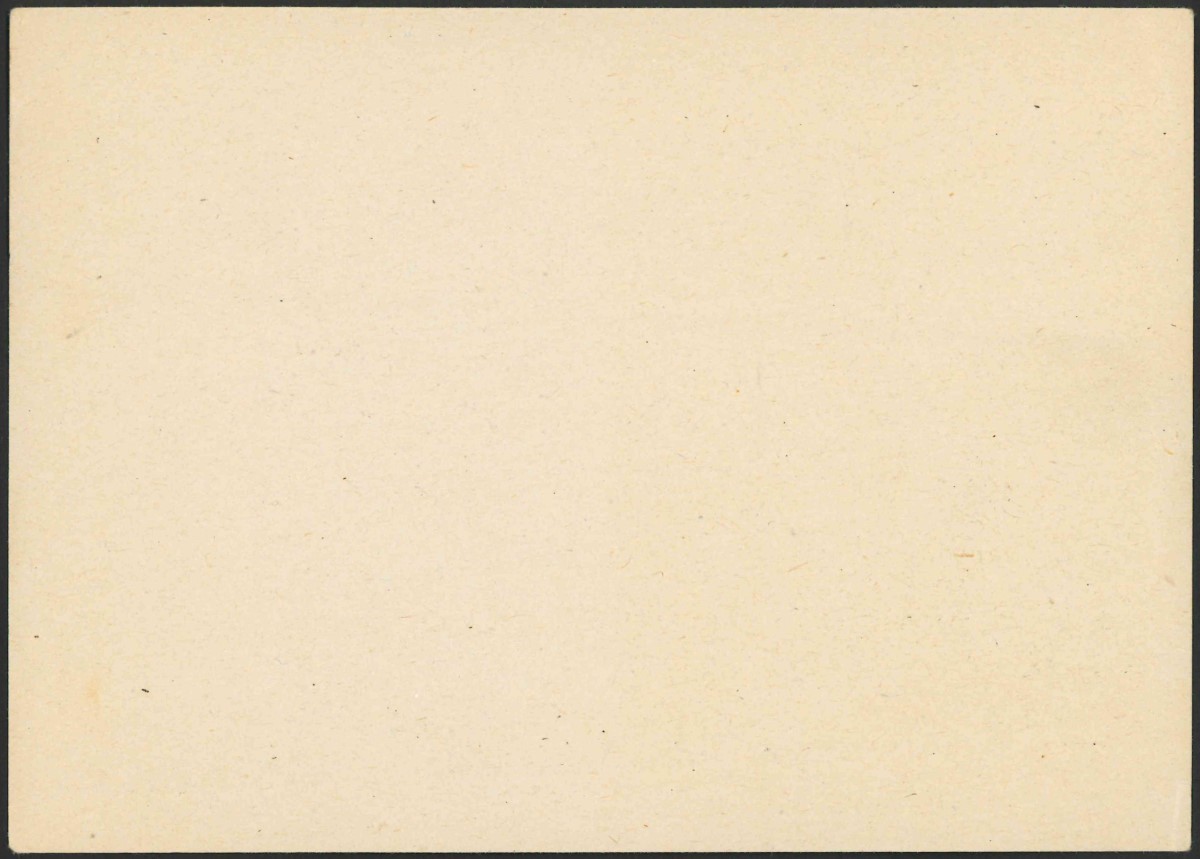


10. THE LORD AND HIS SERVANT
This card features two mounted men travelling through the countryside. The inscription reads "Es reit der herr und auch sein knecht wohl über die heide / die war schlecht / und alles / was sie redten da / war all von einer wunderschonen frauen" - 'The lord and his servant also ride over the heathen, which was bad, and everything they said was about a beautiful woman'.
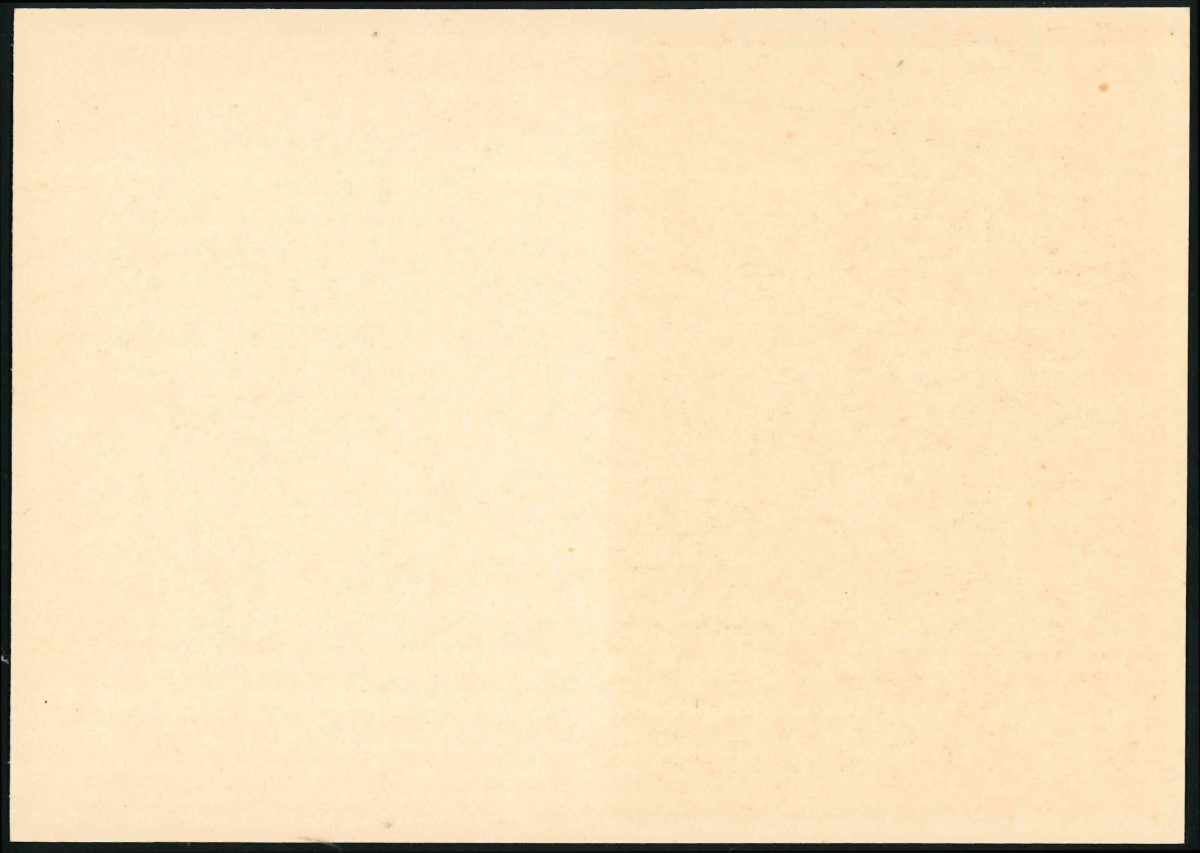


11. FIGHTING AT THE FRONT
This card features a German trench system complete with a dead soldier in the foreground and artillery under enemy fire in the background. The inscription reads "Frei ist nur das Volk, das stark genug ist seine freiheit zu behaupten" - 'Only the people who are strong enough to assert their freedom are free'. The example below was cancelled in BAD KUDOWA on 07.10.1944.
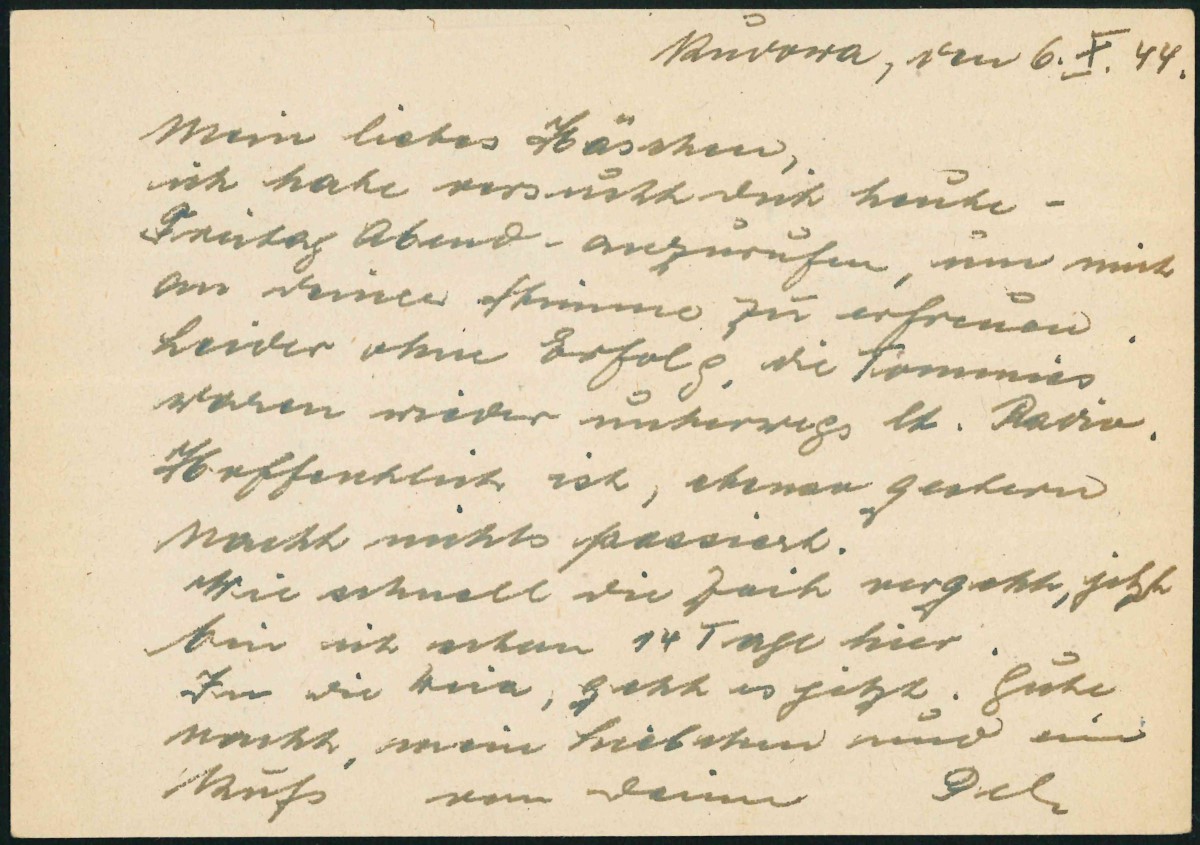


G-0350
A second set of 10 cards was sold in an envelope bearing the inscription "Deutsches Heldenleben | FELDPOST | 10 Künstlerkarten | von | Georg Sluyterman von Langeweyde | Verlag Küster & Co. G.m.b.H., Essen | G-0350"1. THE BRICKLAYER
Featuring a bricklayer building a wall this postcard carries the message "Was wir selbst tun können, das dürfen wir Gott nicht überlassen." - 'What we can do ourselves, we cannot leave that to God.' by Gorch Fock (Johann Wilhelm Kinau), (1880-1916) a German writer .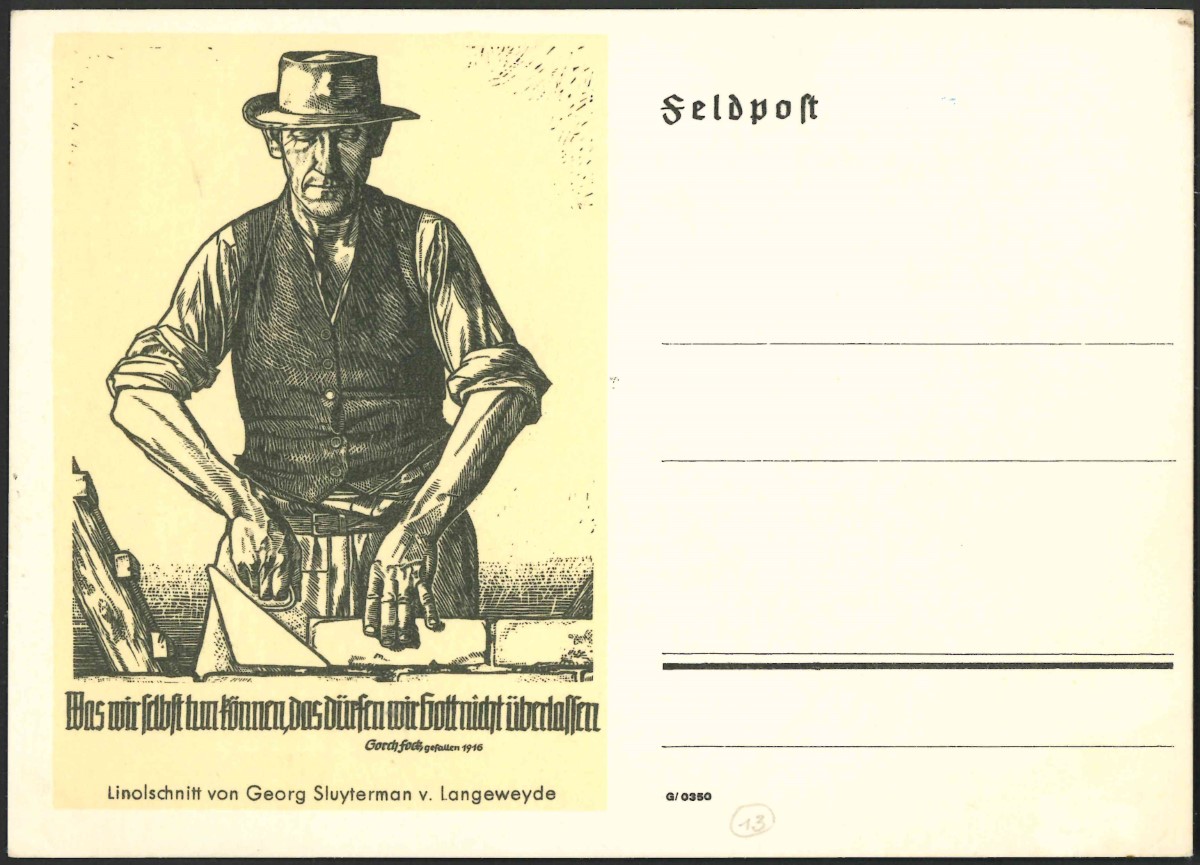


DRUCK ROHDEN ESSEN
1. THE MINER
Featuring a miner, this postcard is inscribed "In das ew´ge Dunkel nieder steigt der Knappe, | der Gebieter einer unterird´schen Welt" - 'Down in the eternal darkness the squire, | is the master an underground world'. These are the first two lines of a long poem by Theodor Körner, German writer and freedom fighter (1791-1813). The full poem can be found here.


NO PRINTER'S CODE
1. ANOTHER SOLDIER
This card features a German soldier carrying a machine gun. The inscription reads "Der Gott der Eisen wachsen ließ der wollte keine knechte!" - 'The god who let iron grow did not want any servants!'. This text comes from 'The Fatherland Song' by Ernst Moritz Arndt in 1812. The full lyrics to the song can be found here